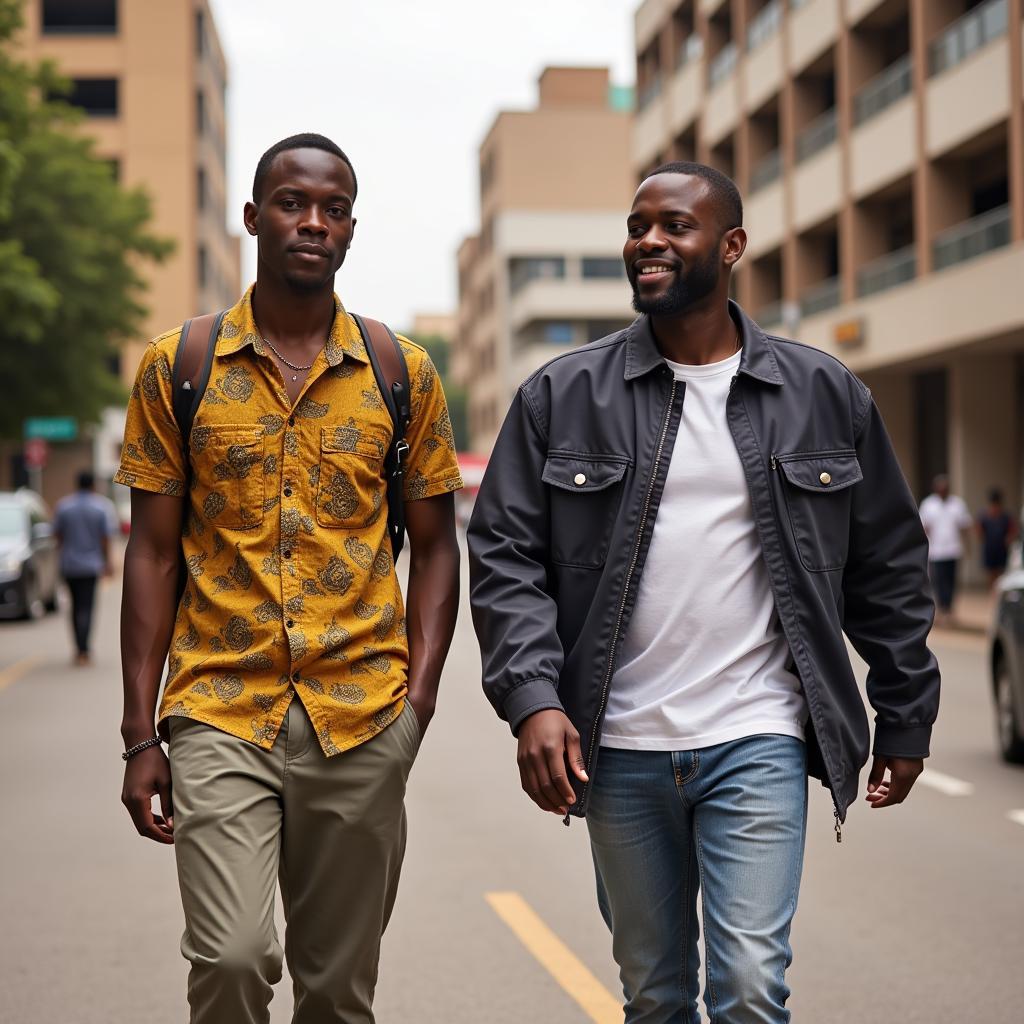The Enduring Bond: African Elder Brothers Guiding Younger Brothers
The concept of an African elder brother helping a younger brother goes far beyond the simple ties of kinship; it’s a deeply ingrained cultural value woven into the fabric of many African societies. This sacred relationship, often described as “more than brothers, closer than friends,” speaks volumes about the values of respect, responsibility, and reciprocity that are central to the African worldview.
A Legacy of Leadership and Protection
From a young age, African boys are raised with a clear understanding of their roles within the family structure. The elder brother, by virtue of age and experience, inherits a mantle of leadership and is entrusted with the responsibility of guiding and protecting his younger siblings. This isn’t simply a matter of physical protection; it extends to emotional support, mentorship, and even financial assistance. In many African cultures, the elder brother is seen as a secondary father figure, stepping in to provide guidance and discipline when parents are absent.
More Than Just Family: Brothers as Keepers of Legacy
This unique dynamic goes beyond the immediate family unit, extending to the wider community. Elder brothers are often called upon to mediate disputes, offer advice, and provide support to their younger siblings, even after they’ve grown up and started families of their own. This interconnectedness fosters a strong sense of community and shared responsibility, reinforcing the African proverb, “It takes a village to raise a child.”
Stories of Sacrifice and Unwavering Support
Across the diverse cultures of Africa, countless stories celebrate the extraordinary bond between elder and younger brothers. Tales passed down through generations speak of elder brothers making incredible sacrifices to ensure their younger siblings receive an education, pursue their dreams, or simply have enough food on the table. These narratives serve as powerful reminders of the unwavering support and selflessness that characterize this special relationship.
Navigating Modernity: The Evolving Role of Brotherhood
In today’s rapidly changing world, traditional family structures are evolving, and the role of the African elder brother is also adapting to meet new challenges. Despite the influences of globalization and urbanization, the core values of brotherhood – respect, responsibility, and unwavering support – remain strong. Many African brothers living in urban centers or abroad continue to honor these traditional bonds, offering financial and emotional support to their siblings back home, highlighting the enduring strength of these familial connections.
 Two young African men, dressed in contemporary clothing, stand shoulder-to-shoulder in a bustling city, symbolizing the adaptation of traditional values within a modern context
Two young African men, dressed in contemporary clothing, stand shoulder-to-shoulder in a bustling city, symbolizing the adaptation of traditional values within a modern context
The relationship between African elder and younger brothers is a testament to the power of family and community. It’s a bond forged in shared history, cultural values, and a deep understanding of mutual obligation and support. As Africa continues to evolve, this enduring brotherhood will undoubtedly continue to play a vital role in shaping the lives of generations to come.
